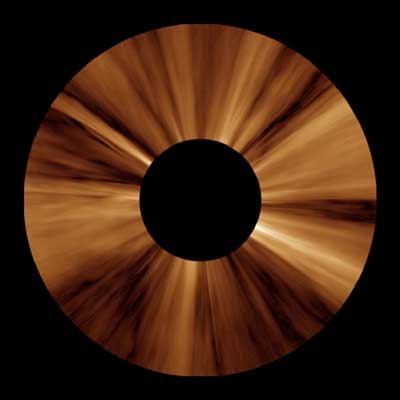 Using advanced algorithms and data-cleaning techniques, scientists discovered never-before-detected, fine-grained structures in the outer corona - the Sun's million-degree atmosphere -- by analyzing images taken by NASA's STEREO spacecraft.
Using advanced algorithms and data-cleaning techniques, scientists discovered never-before-detected, fine-grained structures in the outer corona - the Sun's million-degree atmosphere -- by analyzing images taken by NASA's STEREO spacecraft.
Jul 18th, 2018
Read more
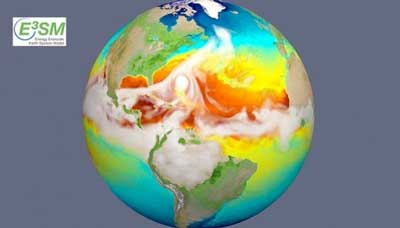 Researchers have developed a new simulation to help us learn more about Earth's present and future.
Researchers have developed a new simulation to help us learn more about Earth's present and future.
Jul 13th, 2018
Read more
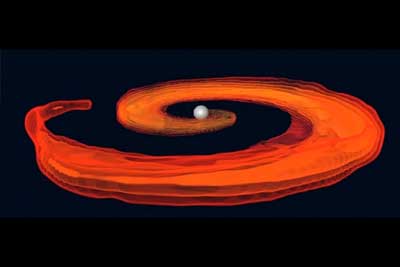 Signals from rare black hole-neutron star pairs could pinpoint rate at which universe is growing, researchers say.
Signals from rare black hole-neutron star pairs could pinpoint rate at which universe is growing, researchers say.
Jul 12th, 2018
Read more
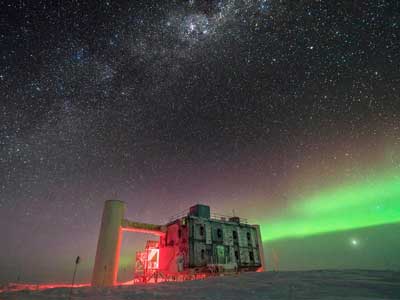 For the first time ever, scientists have determined the cosmic origin of highest-energy neutrinos.
For the first time ever, scientists have determined the cosmic origin of highest-energy neutrinos.
Jul 12th, 2018
Read more
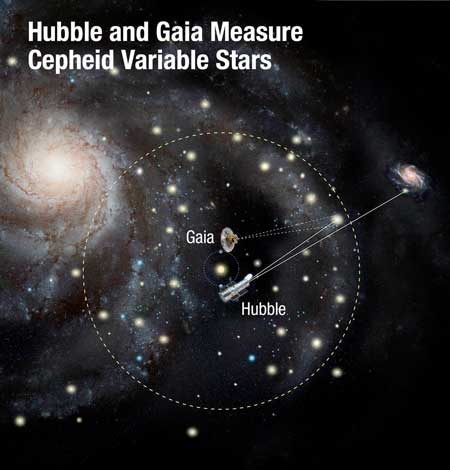 Using the power and synergy of two space telescopes, astronomers have made the most precise measurement to date of the universe's expansion rate.
Using the power and synergy of two space telescopes, astronomers have made the most precise measurement to date of the universe's expansion rate.
Jul 12th, 2018
Read more
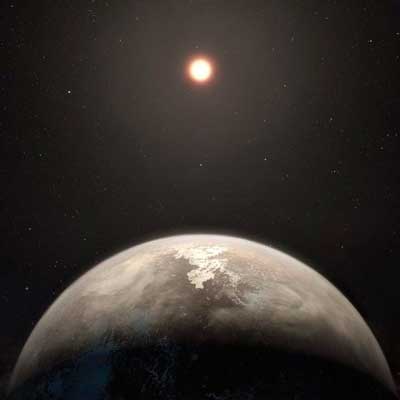 Detailed chemical abundances of the Ross 128 help us understand its exoplanet Ross 128 b.
Detailed chemical abundances of the Ross 128 help us understand its exoplanet Ross 128 b.
Jul 10th, 2018
Read more
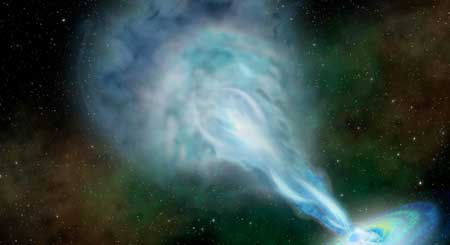 Found: Quasar with the brightest radio emission ever observed in the early universe.
Found: Quasar with the brightest radio emission ever observed in the early universe.
Jul 9th, 2018
Read more
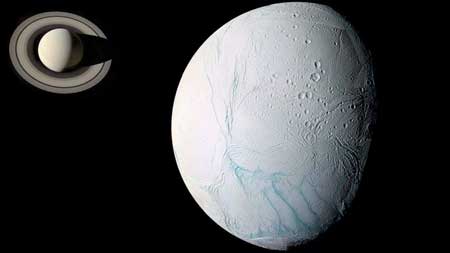 The discovery of complex molecules from one of Saturn's moons suggests that it could support life.
The discovery of complex molecules from one of Saturn's moons suggests that it could support life.
Jul 6th, 2018
Read more
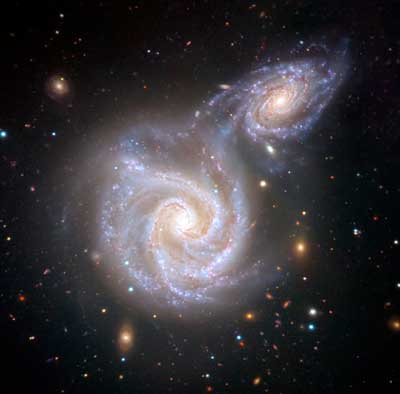 This cosmic crash was a defining event in the early history of the Milky Way and reshaped the structure of our galaxy, fashioning both its inner bulge and its outer halo.
This cosmic crash was a defining event in the early history of the Milky Way and reshaped the structure of our galaxy, fashioning both its inner bulge and its outer halo.
Jul 5th, 2018
Read more
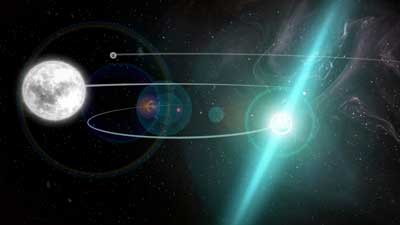 Einstein gets it right again.
Einstein gets it right again.
Jul 5th, 2018
Read more
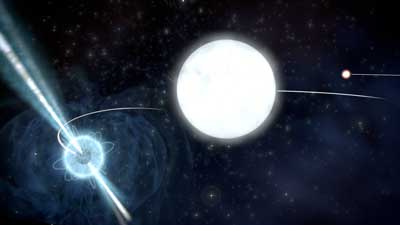 In a novel test of Einstein's theory of general relativity, an international group of astronomers has demonstrated that the theory holds up, even for a massive three-star system.
In a novel test of Einstein's theory of general relativity, an international group of astronomers has demonstrated that the theory holds up, even for a massive three-star system.
Jul 5th, 2018
Read more
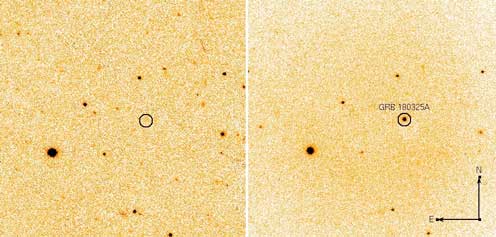 This type of dust has been found to be rare in other galaxies and the new discovery plays an important role in understanding what it takes for this particular type of interstellar dust to be formed.
This type of dust has been found to be rare in other galaxies and the new discovery plays an important role in understanding what it takes for this particular type of interstellar dust to be formed.
Jul 3rd, 2018
Read more
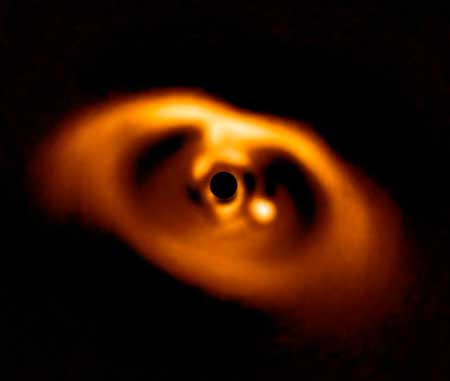 Astronomers have captured a spectacular snapshot of planetary formation around the young dwarf star PDS 70.
Astronomers have captured a spectacular snapshot of planetary formation around the young dwarf star PDS 70.
Jul 2nd, 2018
Read more
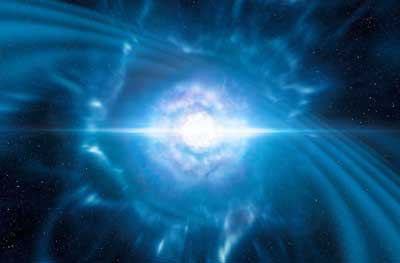 Nuclear binding energies of several rare-earth isotopes have been measured for the first time. The experiment provides essential data for understanding how elements heavier than iron are produced in the Cosmos.
Nuclear binding energies of several rare-earth isotopes have been measured for the first time. The experiment provides essential data for understanding how elements heavier than iron are produced in the Cosmos.
Jul 2nd, 2018
Read more
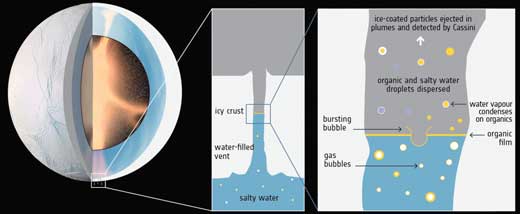 Researchers study ice particles and find macromolecular compounds.
Researchers study ice particles and find macromolecular compounds.
Jun 28th, 2018
Read more
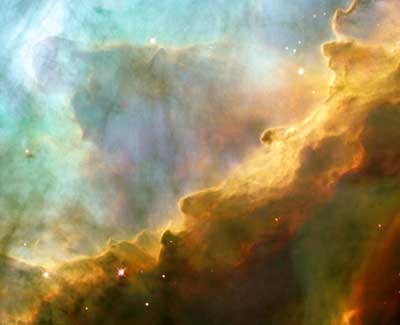 Using terahertz spectroscopy, physicists directly measured two spectral lines for one particular molecule for the first time. The discovered frequencies are characteristic of the amide ion, a negatively charged nitrogen molecule.
Using terahertz spectroscopy, physicists directly measured two spectral lines for one particular molecule for the first time. The discovered frequencies are characteristic of the amide ion, a negatively charged nitrogen molecule.
Jun 28th, 2018
Read more
 Astronomers used a laboratory to manufacture material with the same properties as interstellar dust and used their results to estimate the amount of 'space grease' found in the Milky Way.
Astronomers used a laboratory to manufacture material with the same properties as interstellar dust and used their results to estimate the amount of 'space grease' found in the Milky Way.
Jun 27th, 2018
Read more
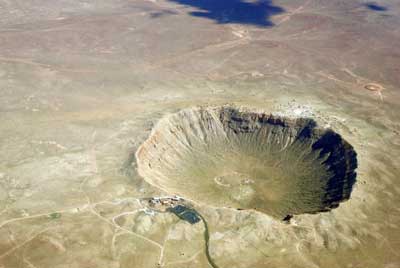 Researchers inspired by school science to crack the conundrum of planetary craters.
Researchers inspired by school science to crack the conundrum of planetary craters.
Jun 27th, 2018
Read more
 Using advanced algorithms and data-cleaning techniques, scientists discovered never-before-detected, fine-grained structures in the outer corona - the Sun's million-degree atmosphere -- by analyzing images taken by NASA's STEREO spacecraft.
Using advanced algorithms and data-cleaning techniques, scientists discovered never-before-detected, fine-grained structures in the outer corona - the Sun's million-degree atmosphere -- by analyzing images taken by NASA's STEREO spacecraft.
 Subscribe to our Space Exploration News feed
Subscribe to our Space Exploration News feed















